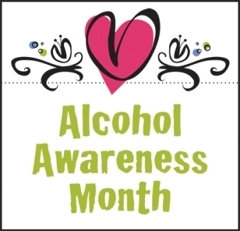April is Alcohol Awareness Month
April is Alcohol Awareness Month
March 31, 2014
April is National Alcohol Awareness Month!
Too often individuals who are suffering from alcoholism, or have a loved one suffering from alcoholism suffer in silence. There are feelings of shame, guilt, and hopelessness. It can be a very isolating and lonely feeling. But the NYCDCC Benefit Funds is here to tell you that you’re not alone and we’re here to help.
We understand that admitting there is a problem and coming forward to ask for help takes a great deal of courage and strength. We also know that this can be an overwhelming and confusing process, so we’d like to offer our assistance and walk you through the process of getting help.
First, let’s begin by going over some of the common signs and symptoms of alcoholism, and by also revealing some questions you can ask yourself (or loved one) to help determine whether or not a problem exists.
Signs & Symptoms:
- Repeatedly neglecting your responsibilities at home, work, or school because of your drinking
- Using alcohol in situations where it’s physically dangerous (e.g. drinking and driving, operating machinery, mixing alcohol with prescription drugs)
- Experiencing repeated legal problems due to your drinking
- Continuing to drink even though your alcohol use is causing problems in your relationships
- Drinking as a way to relax or de-stress
- Tolerance (i.e. having to drink a lot more to become buzzed or intoxicated)
- Withdrawal (i.e. symptoms of not drinking and the need to drink in order to alleviate the symptoms. Some symptoms include shakiness, trembling, nausea/vomiting, headache, depression, sweating, etc.)
- Loss of control over your drinking
- Wanting to quit, but being unable
Questions to Consider:
- Do you feel guilty or ashamed about your drinking?
- Do you lie to others or hide your drinking habits?
- Do you have friends or family members who are worried about your drinking?
- Do you need to drink in order to relax or feel better?
- Do you “black out” or forget what you did while you were drinking?
- Do you regularly drink more than you intended to?
As cliché as it may sound, the first step is admitting there is a problem. This sounds like an easy first step, but it’s probably one of the most difficult. Generally speaking, alcoholics live in a state of denial regarding their drinking. It’s usually not until they’re laid off from work, their significant other has ended the relationship, or they’re involved with the law that they begin to see there may be a problem at hand. Being able to admit and acknowledge that a problem exists is a crucial first step on the road to recovery.
The next step is contacting either the Benefit Funds, or Empire BlueCross BlueShield to go over the available benefits, and to ensure your insurance coverage is active. Remember, substance abuse is a covered benefit. However, there are key points that you must keep in mind:
- Inpatient and Intensive Outpatient treatment requires pre-certification
- You’re entitled to an unlimited number of medically necessary days, but
- Empire determines whether or not it is medically necessary
- Treating clinician can appeal to Empire if denied
- Co-Insurance and Deductible apply for inpatient, intensive outpatient, and outpatient services
- Co-Insurance = 10% for In-Network; 30% for Out of Network
- Deductible = $400/individual; $750/family for In-Network; $750/individual; $1875/family for Out of Network
Once you have verified your coverage and understand how the benefit works, your next step will be to obtain a listing of participating providers. You can obtain this listing via Empire’s website www.empireblue.com or by calling Empire directly at (800) 533- 9603.
You will then want to contact a facility to start the process of being screened for a possible admission. The next steps will vary depending on the course of treatment (inpatient, intensive outpatient, and outpatient). Please keep in mind that there is no universal course of treatment; what works for one, may not work for another. The key is staying focused, finding what works best for you, and sticking with it.
The road to recovery may be a bumpy one, but with support and determination, you can make it through. You may not know it, but there are success stories working right beside you every day!
If you have any questions regarding the benefits or locating services, please call the Empire BlueCross BlueShield at (800) 533-9603 or the NYCDCC Benefit Funds at (212) 366-7300 or 1 (800) 529-3863.
For additional information you can visit:
Alcoholics Anonymous
National Association for Children of Alcoholics
http://www.al-anon.alateen.org/local-meetings
Support group for family and friends of alcoholics
http://www.samhsa.gov/prevention/
Substance Abuse Mental Health Services Administration
http://www.drugfree.org/prevent
The Partnership at Drugfree.org
National Council on Alcoholism & Drug Dependence, Inc.
http://www.sober.com/facilities/sober_houses
Sober Living Facilities
Informative Leaflets:
Signs and Symptoms of Alcohol Abuse
Drinking and Driving Statistics








